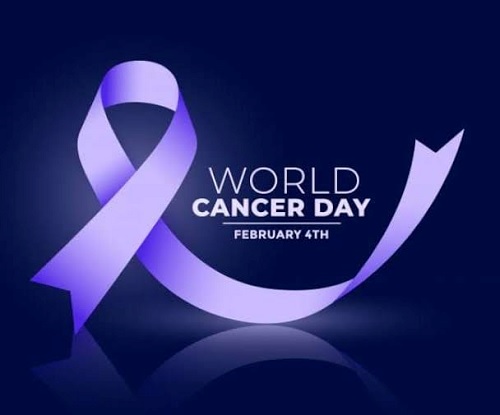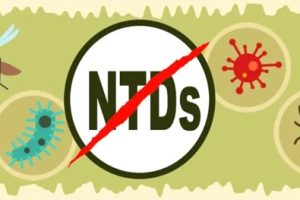
BY ELIZABETH MENGISTU
“I will never forget that day. 4:02 P.M. The phone rang. I stood in my living room looking out the window as my little boys ran off the school bus, listening to my preschool aged daughters playing at my feet. “It is cancer”. I fell to the ground paralyzed with fear.
Until there is a cure, we will lovingly wrap our arms around those who receive that call. Steve took me to Florida one week after I finished my last Herceptin. I tried to rock the chemo mullet before mullets were cool.”
This is the story of Heather Printz Salazar, one of cancer survivors. As Printz, shared lately her story on social media in relation to the international World Cancer Day marked last Friday, February 4, 2022, the feelings she had experienced when she first heard the bad news; and the sufferings she had gone through to beat the disease were too frightening and agonizing.
“My hair started falling out. It happens faster than one thinks. It is devastating. The pain you experienced in your life is no more or less valuable/painful/life-changing than mine, said Shaira Alam, the other, Breast Cancer survivor.
No wonder, experiencing such critical moment is too scary and petrifying for knowing cancer is one of the leading cause of deaths, next to cardiovascular, and realizing its nature of spreading at faster rate than expected and touching all organs speedily.
According to WHO’s recent report, globally, cancer is a major burden of disease worldwide, accounting for nearly 10 million deaths in 2020, or nearly one in six deaths.
The most common cancers are breast, lung, colon and rectum and prostate cancers. Around one-third of deaths from cancer are due to tobacco use, high body mass index, alcohol consumption, low fruit and vegetable intake, and lack of physical activity.
Cancer-causing infections, such as human papillomavirus (HPV) and hepatitis, are responsible for approximately 30 percent of cancer cases in low- and lower-middle-income countries. Luckily, many cancers can be cured if detected early and treated effectively, the report added.
Understanding this, countries mark international cancer day every year with the aim to raise global awareness about cancer and its impacts as well as gain worldwide attention and inspire action for a cancer-free world. This year’s cancer day was marked with a theme, “Close the care gap”.
Ethiopia also marked the Day with this same theme emphasizing the disparity in cancer care and the effort to bridge the gap.
According to a statement which was shared on the social media of Ministry of Health, Ethiopia is implementing National Ethiopia’s Cancer Care and Control Plan. It is also working committedly giving due emphasis on developing human capital in the area to make the treatment accessible and improve cancer diagnosis and treatment services.
Meanwhile, the International Atomic Energy Agency expressed its keenness to support Ethiopia to establish cancer treatment center.
This was revealed following the recent discussion held between Deputy Prime Minister and Foreign Minister Demeke Mekonnen and the Director-General of the International Atomic Energy Agency (IAEA), Rafael Mariano Grossi.
As FBC reported, on the occasion, Deputy Prime Minister stated Ethiopia’s interest to work with the ISEA in utilizing Atomic energy for development purposes, in particular in the agricultural sector. He also requested the Agency to open its office in Ethiopia.
Recalling the annual observance of World Cancer Day on February 04, Mr. Rafael Mariano on his part expressed his Agency’s interest to establish a cancer treatment center in Ethiopia.
According to IAEA, the total number of cancer deaths worldwide is forecast to rise by 60 percent in the coming two decades, to 16 million people every year, with the low- and middle-income countries – in Africa and elsewhere – suffering the brunt of this global health tragedy with mortality rates far above those in wealthier regions.
Therefore, the Agency has launched a plan to tackle a severe shortage of cancer care capacity in many poorer countries, with an initial focus on Africa where people often die from the disease because they lack access to potentially life-saving nuclear medicine and radiotherapy.
The Ethiopian Herald February 8/2022





